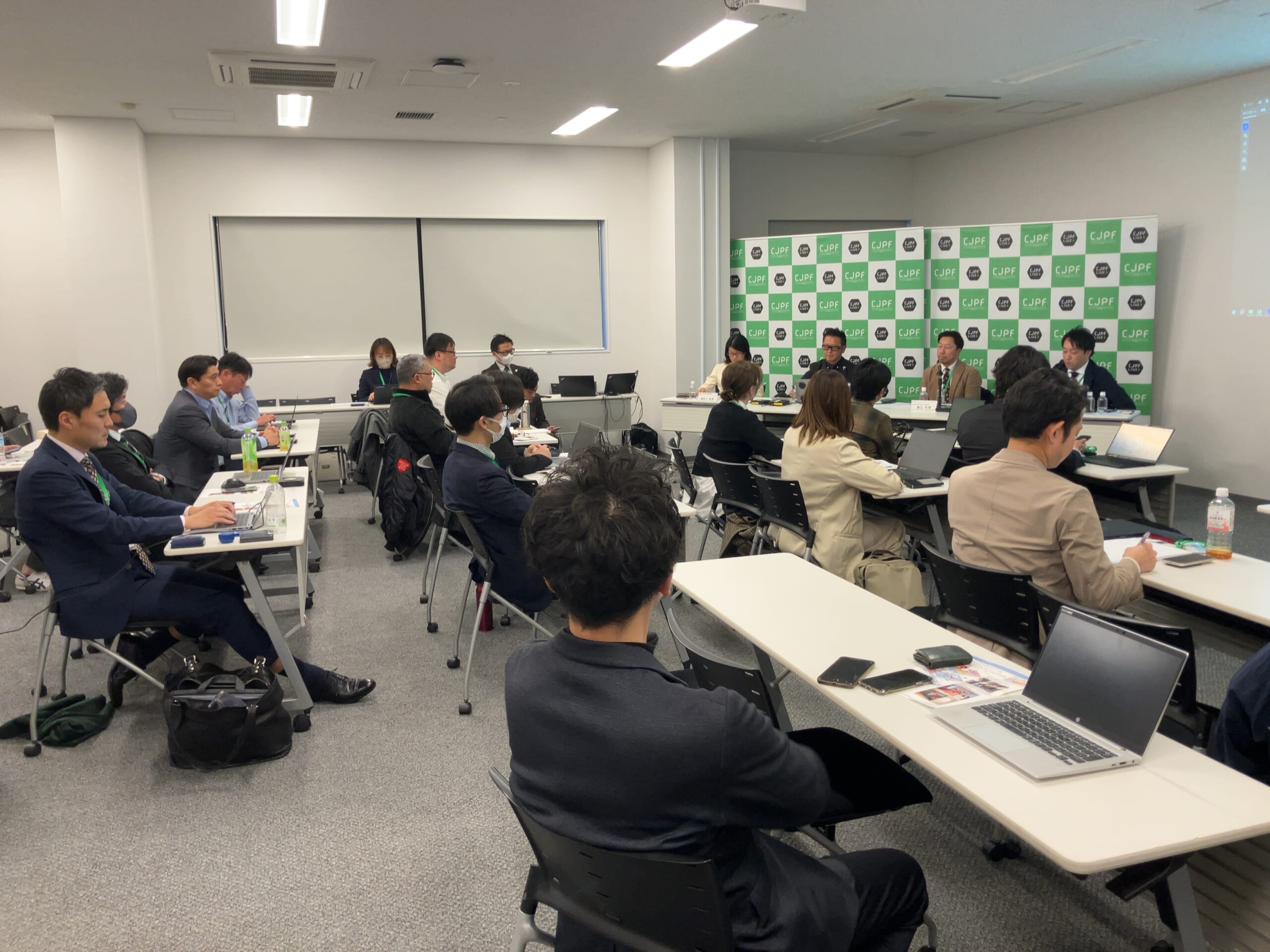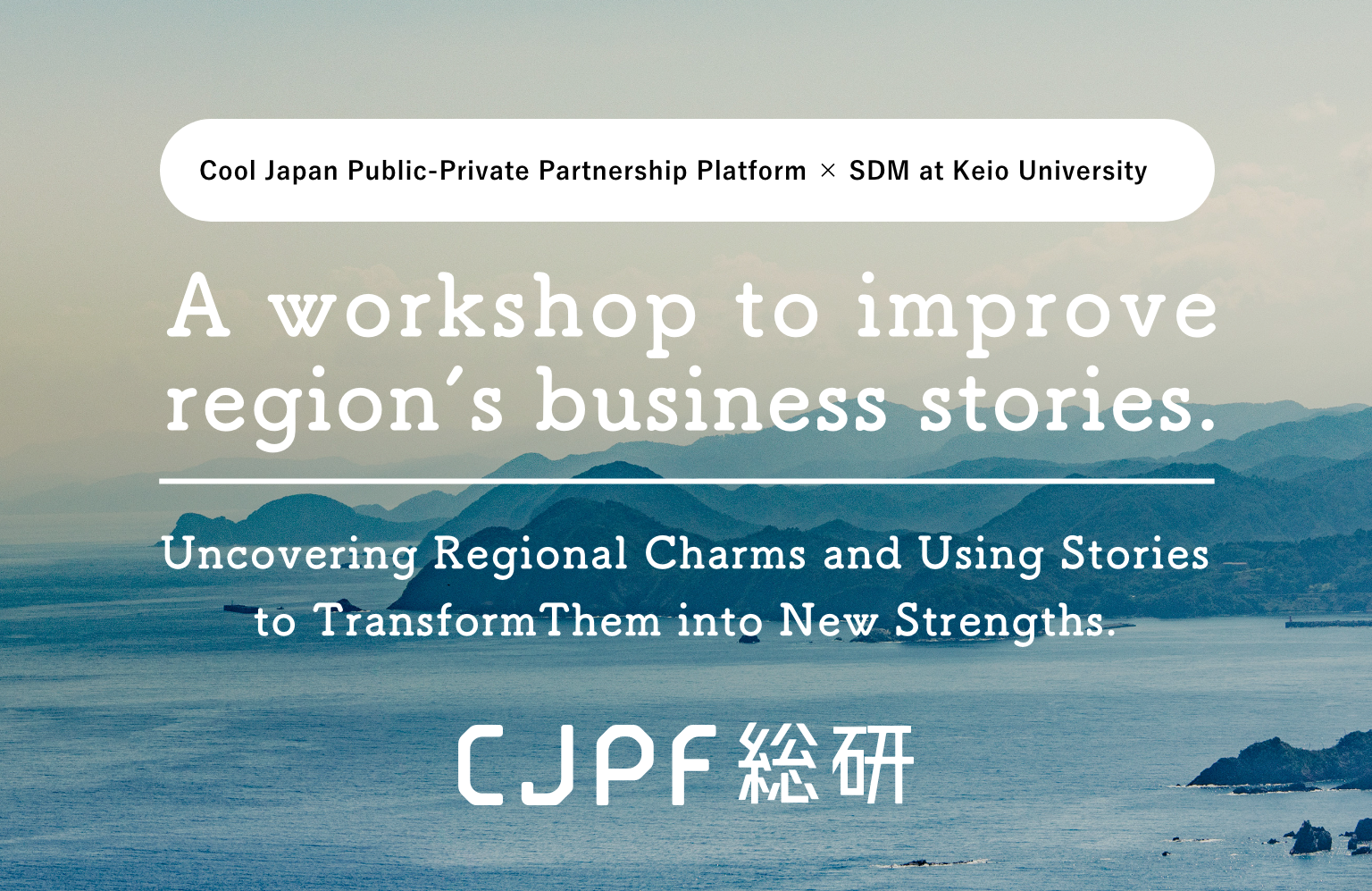CJPF regularly hosts CJPF LAB (study sessions) as a platform for companies and experts interested in overseas expansion strategies for Cool Japan industries to share information and exchange ideas. By involving public-private partnership platform members and CJPF producers, the CJPF LAB fosters knowledge-sharing through insights from pioneers in various Cool Japan fields and successful global case studies. The goal is to support business expansion for those involved in Cool Japan and create collaboration opportunities among industry professionals. In the first session, Mr. Kazuhiro Watanabe, Executive Officer and Head of Overseas Business MD Strategy at Pan Pacific International Holdings, and Mr. Kenichi Hiyama, General Manager of the Fresh Food Overseas Business MD Strategy Division, delivered a lecture on the company’s overseas expansion strategy.
What is Don Quijote’s Overseas Expansion Strategy?
■ Potential of Overseas Business
The speakers discussed the past, present, and future of the company’s overseas business. The number of overseas stores has grown rapidly from 14 in 2017 to 116 today, with overseas sales surging from 35.9 billion yen to 315.8 billion yen.
One key feature of the company’s overseas expansion is differentiated product strategies for each region, with a focus on Japanese products in Asia and strengthening Japanese product offerings while integrating local items in the U.S.
Another notable characteristic is the variation in store concepts. While the domestic concept revolves around “convenience + discount + amusement,” the overseas strategy emphasizes “deliciousness, health, and sustainability,” positioning stores as specialty retailers of Japanese brands.
For future overseas expansion, the company has outlined the following key strategies:
・Capitalizing on the current popularity of Japan and ensuring rapid business expansion
・Offering a constantly evolving and engaging product lineup
・Adapting swiftly to economic conditions and consumer behaviors
■ The Potential of Food – Fresh & Processed Products
The speakers provided insights into the explosive popularity of Japanese food products overseas. For example, Japanese sweet potatoes have gained immense popularity for their rich sweetness, with the company leveraging social media to further expand sales.
They also conducted an in-depth analysis on the challenges in overseas expansion, including differences in taste preferences, product standards, and quality expectations between Japan and foreign markets, using these insights to drive future business development.
The Pan Pacific International Club (PPIC) was also introduced as a partnership organization that collaborates with primary producers, logistics providers, and local governments to expand exports of Japanese products.
■ The Potential of Non-Food Products – Beauty & Hobby-Related Items
In the non-food sector, the company focuses on the strengths of Japanese products by curating product selections based on the following key categories:
・Beauty (cosmetics and skincare)
・Culture (characters, anime, and pop culture items)
・Technology (functional and convenient goods)
The speakers provided insights into the most popular Japanese products in different countries.
■The Potential of Promotions – A Love Letter to Customers
This section covered the company’s localization strategy, which centers around delegating authority to frontline employees in alignment with the corporate philosophy of customer-first management.
Local employees are empowered to make key decisions regarding:
・Product selection
・Pricing
・Merchandising (POP displays, store layouts, packaging innovations, and video-based explanations)
This decentralized approach has led to numerous hit Japanese products in international markets.
Additionally, as part of the company’s digital transformation (DX) initiatives, customer feedback is actively gathered through the company’s app, QR codes in stores, and the Maji Voice section on the Don Quijote membership website. This feedback loop is directly linked to product improvements, reinforcing the company’s commitment to customer-first principles.
These strategies have played a vital role in Don Quijote’s growing popularity overseas.
■ The Potential of Collaboration – Strengthening Public-Private Partnerships
The speakers also introduced examples of public-private collaboration to enhance Japan’s export ecosystem. The company aims to develop the entire industry by sharing its real-time customer insights and sales data with various stakeholders across the value chain, from production and logistics to retail.
Regarding government partnerships, the company has collaborated with the Ministry of Agriculture, Forestry and Fisheries and JETRO to address regulatory requirements for overseas sales.
Additionally, they presented case studies on data utilization initiatives led by the Cabinet Office, which involve using logistics and production data to streamline complex export operations.
Final Proposals to the Government
To conclude, the company presented the four following key policy recommendations to the government:
1.Fostering enthusiasm among producers and manufacturers for export opportunities
2.Actively considering deregulation to support export growth
3.Enhancing logistics and trade support measures
4.Providing promotional support for Japanese products in overseas markets
With these recommendations, the first CJPF LAB session successfully came to a close.






